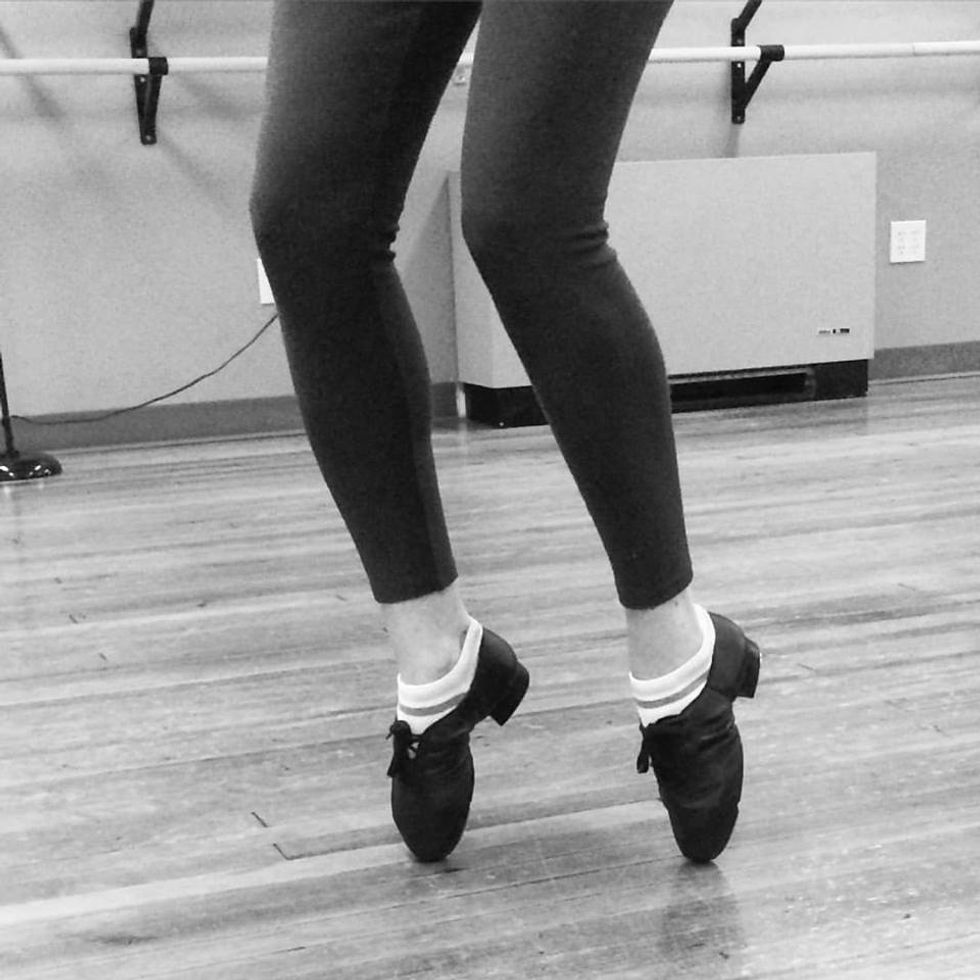I recently wanted to see if there were any dance schools around me that offered competition dance classes, in hopes that maybe I could start teaching or assistant teaching there. While searching the internet, I came across multiple dance studios and articles that were against competition dance due to various reasons, which inspired me to explain why competition dance taught me things that go way beyond the studio.
1. How to push yourself to be better
I'll never forget being younger in one of the classes and feeling like I couldn't measure up. I felt like I'd always be placed in the back line or hidden to the side because I just didn't have to skills to compete. However, competition dance and the teachers who teach the class don't want students feeling this way. They want them to progress, learn, and push themselves to learn new things. As soon as I realized that I wasn't a bad dancer, I started to see how much I was capable of and push my limits. I went from only being able to do single turns to hitting triple turns by constantly practicing outside of class, in school, and at home. You learn that if you want to be able to do a split on both sides, you have to stretch daily and do more than just get by.
2. Communication
I've found that as I moved from my life as a teenager into my professional life, a lot of things that dance taught me has trickled into other areas. When you're going to miss a class as a competition dancer, which is very rare and you always feel terrible about it, you call your studio or teacher and let them know and maybe even set up a private lesson to learn everything at a different time. I've found that in my professional life, I never miss work, and if I do, it's because I'm sick as a dog and can't get out of bed. I always let people know if I'm even running five minutes late because being late means missing warm-ups and that's not good for your body, just like missing an intro to a meeting might completely mess you up. You learn to be over communicative and always go the extra mile if you're going to miss something to make up for it.
3. Discipline
Competition dance is strict, and not in a bad way. It teaches routine; and not just a dance routine, but in one hour, you learn to warm up, progressively learn new moves, jumps and turns, and cool down before you leave. That translates to everything in life, as well as making sure you're staying on task. When you walk into work, you do a warm-up, maybe it's catching up on news, making your bagel and coffee, or checking social media. You then dive head first into your job and you're grinding away until you know the work day is almost over. You also know that if you don't stay on task, you'll fall behind or not complete your project. You have to make sure you get everything done and stay focused throughout the day. You then start to wrap things up, pack up your bag, and throw out any empty coffee cups or scrap papers you have around before you leave.
4. Compassion
There are times that you don't always get along with everyone around you. You might not feel like some people try their hardest or are hurting your progress. Although it's easy to just get angry and give up, competition dance taught me compassion and to help others. Instead of getting angry and brushing that person off, you offer to help them with that move or you crack a joke or a smile when you feel like maybe it's just not their day. It's not about getting off stage and saying "Wow, you didn't hit that turn and now we won't get gold," it's about looking at the person and saying "Don't worry about it! You did your best" It's seeing someone upset and offering a shoulder to cry on or telling them you totally wiped out after a jump to help cheer them up and not let them feel alone. Anyone can relate to needing that little bit of relief. At the end of any day, it's nice to not feel alone or that someone's there to offer a smile.
5. How to be a teammate
When I was growing up dancing, there were multiple different age groups for competition. I started in the 10-14 level, admiring the 15-18 girls and watching them in awe of how great they were. The youngest group, 6-9-year-olds, always seemed to have drama, whether it be between the girls or the mothers. As my age group grew into the older group and as the younger girls got older, our age developed a bonding mentality that went beyond the dance studio. We would have sleepovers or all meet for pizza before class. We started traditions like having the oldest member give a pep talk before hitting the stage, and we starting showing the younger girls that we're all one studio. We all want to win, but we have to support each other and work together to be the best version of ourselves. In that, I learned how to be a teammate and make sure all of the dancers are getting along and happy. We're a competition squad, not in competition with each other.
I grew up competing in dance and it shaped so much of who I am, and I carry a lot of those lessons with me to this day. I think it’s a great asset to have in a studio and an option that dancers shouldn’t be denied.





















